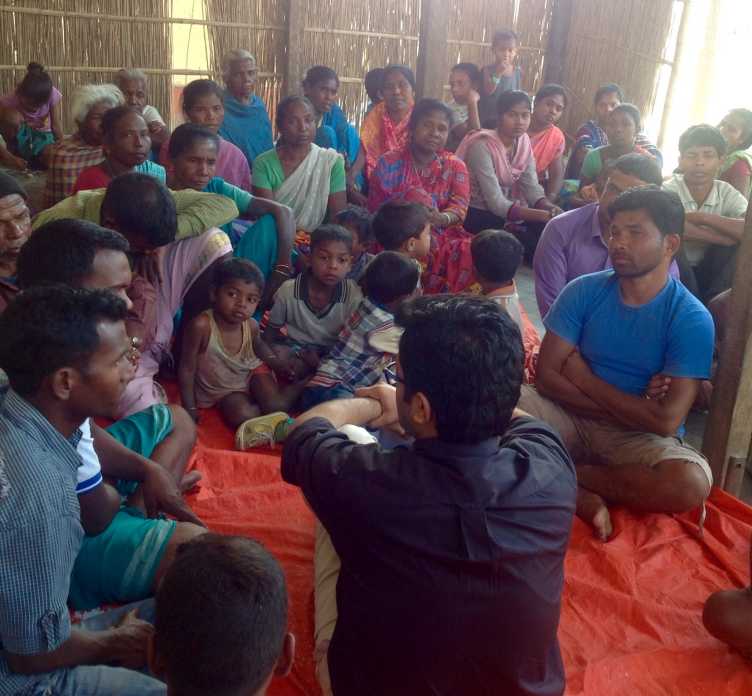The Project

As the wave of protests and demonstrations across the Middle East during the Arab Spring and the recent outbreaks of violence in Syria, the Central African Republic or South Sudan have shown, civil wars and popular uprisings continue to cause large-scale loss of human lives, forced displacement and poverty throughout the world. In most of these situations, the state suffers from major structural weaknesses, which result in an unequal access to political power and public goods across segments of the society and/or hinder the state’s effective control of its territory.
While recent scholarship has demonstrated that economic and political inequality between ethnic groups is a major contributing factor to political instability and conflict, the exact mechanisms behind this relationship still remain poorly understood. In view of this, this project carefully studies the process leading from ethnic inequality to conflict, seeking to provide a more complete account of the respective causal path.
In doing so, it benefits from its collaborative feature, linking research institutions throughout the world. As each partner is located in a distinct social and political context - ranging from peaceful to antagonistic patterns of state and ethnic group interactions -, the project leverages these differences in view of gaining a better understanding of inter-group inequality, its role in mobilization processes and its impact on the risk of ethnic conflict.
Specifically, the project focuses on three integrative themes: ethnic mobilization, perceived and objective grievances, and natural resources and grievances.
This integrative theme examines the mobilization process and attempts to understand when and how intergroup inequalities result in conflict, focusing in particular on the role of ethno-political organizations and state policies. Central to this theme is the EPR-Organizations dataset, which aims at generating original data on organizations that represent ethnic groups throughout the world (For more information, please see Data).This is combined with in-depth case studies by various project partners, which provide further, context-specific information on the mobilization process. For instance, researchers in Guatemala investigate how cohesion, and conversely fragmentation, within indigenous movements influences the process of group mobilization. Likewise, research in Zambia examines how ethnic inclusion in government has mitigated potentially adverse consequences of the interplay between multi-party democracy (after its re-introduction in 1991) and ethnic cleavages.
Extant research has to a large extent focused on so-called "objective inequalities" between ethnic groups. Yet, perceptions of inequalities by group members may differ substantially. This theme therefore seeks to address how perceived inequalities relate to objective measures, and thus shape ethno-nationalist narratives and ultimately contribute to ethnic mobilization. Research carried out collaboratively by scholars in Egypt, Ethiopia, India and Switzerland investigates subjective perceptions of economic inequality, public goods provision, political representation, and inter-group relations more generally, conducting field research in three Indian states (Jammu and Kashmir, Assam and Chhattisgarh), as well as in Sudan and Ethiopia, using group and key informant interviews.
Finally, the third integrative theme explores the interaction between natural resource extraction and intergroup inequalities in shaping grievances. Many scholars have long hypothesized that natural resource extraction may lead to violence over distributional issues, be it because of an influx of migrant workers who come to be perceived as a threat to the local population or negative environmental externalities induced by the extraction process itself. The project thus seeks to investigate mechanisms such as these, as well as how ethnic entrepreneurs articulate grievances relating to natural resources. In this regard, research at the Copperbelt University in Zambia studies how ethnic entrepreneurs instrumentalize competition over access to jobs and land in the Zambian Solwezi mining region to their own advantages. Similarly, taking a comparative approach, researchers in Egypt investigate how ethnic cleavages are shaped by differential access to natural resource wealth.
Objectives of the research project
- To improve existing measures of inequality and deepen our understanding of mobilization processes involving political organizations that represent ethnic groups.
- To provide scientific knowledge to political actors with a view to reducing exclusion and discrimination of ethnic groups and to mitigating its adverse consequences.
- To strengthen academic institutions by providing funding for young researchers in the partner institutions and to promote cooperation with other academic institutions within each partner's sub-region.
Relevance for policy-making
A more detailed understanding of the political mobilization processes of ethnic groups and possible accommodating strategies by the state can serve as a basis to produce evidence-based policy recommendations for structurally weak multi-ethnic countries in order to reduce the risk of violent ethnic conflict and improve political stability.
Our research findings will be disseminated to, inter alia, national governments in partners' countries, civil society organizations, international stakeholders and regional political institutions.
Acknowledgements
This research project is funded by the Swiss Programme for Research on Global Issues for Development (external page R4D), a joint initiative of the Swiss Agency for Development and Cooperation (external page SDC) and the Swiss National Science Foundation (external page SNSF).
The purpose of the R4D programme is to strengthen scientific knowledge on global issues for development (poverty, health, conflict). It is unique in that the dissemination aspect of policy relevant knowledge is an integral pillar of the research project along side its scientific objectives. In addition, R4D research projects must devote a significant share of the funding to research institutions in the developing world in order to strengthen academic institutions within partner countries.
This project is following the external page KFPE Principles.